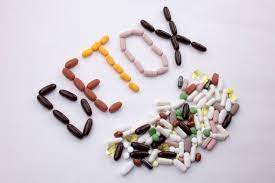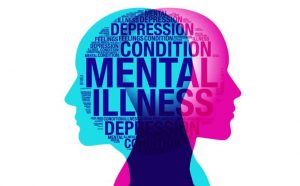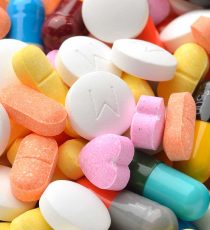
Outpatient addiction treatment can help with the treatment of various substance use disorders. In contrast to inpatient treatment, where you must live inside a rehab facility, outpatient treatment allows you to return home and perform your daily routines. The extra level of freedom in outpatient rehab is beneficial to a lot of patients. It is also more affordable than inpatient rehab, which makes it more accessible to individuals with substance use problems.
Part of the process in outpatient treatment is an assessment of your particular addiction before any therapies begin. Drug testing is usually included in this assessment. Outpatient rehabs test for a variety of drugs.
How is the drug test administered?
Usually, drug tests are done through analyzing a urine sample. You will be asked to pass some of your urine into a small cup, which will be sent to a laboratory for analysis. The labs test for many different addictive substances, such as:
 Amphetamines
Amphetamines- Marijuana
- Heroin
- Cocaine
- Benzodiazepines
- MDMA
- Alcohol
- Opioids
Some rehabs may utilize a special urine cup that can instantly detect the presence of certain drugs. Positive results from this stage are then confirmed further in the laboratory to find out if the result is not a false positive. Also, lab analysis can quantify the amount of drugs in your body, which is important for the initial assessment.
Why is drug testing needed in outpatient addiction treatment?
The most important reason for drug testing is it helps your therapists create a treatment plan that addresses your needs well. The results of the test give them an idea of what substances you are dependent on, how severe the addiction is, and how much of those substances are in your body.
Accountability and monitoring
Also, drug testing may be done at regular intervals during the entire outpatient treatment program. This is done to help your therapists monitor your progress.
It’s also a good way to keep you accountable, discouraging you from secretly taking drugs outside of therapy hours. This is often necessary as the level of freedom you have with outpatient treatment has a disadvantage. It exposes you to temptations to use substances again. But if you know you will be tested regularly, you have a reason not to take drugs.
Complying with court orders
If you have been convicted of a crime related to substance use, you may be required by the court to subject yourself to outpatient addiction treatment and regular drug tests. In some cases, the court will allow the rehab center to conduct the drug tests themselves; other times, the court will require you to have the tests in an independent laboratory.
What will happen after drug testing?
If you have just entered the outpatient treatment program, your therapists will use the results of the drug test to help them plan your treatment. The results will let them tailor appropriate therapies for you, and they will also let them know how long you should be under treatment.
If your drug test results show particularly high levels of a substance, you may need to go through detox first. If not, you can proceed with your therapy sessions.
What is drug detox?
 Drug detox is medically supervised and aims to eliminate as much of those drugs from your body as possible. During detox, you will most likely experience withdrawal symptoms, so medical personnel will monitor your progress. In case of any complications, they may give you medications to counteract those adverse effects of withdrawal.
Drug detox is medically supervised and aims to eliminate as much of those drugs from your body as possible. During detox, you will most likely experience withdrawal symptoms, so medical personnel will monitor your progress. In case of any complications, they may give you medications to counteract those adverse effects of withdrawal.
Because of the risks involved, you may need to stay in a medical facility for the entirety of the detox process, which may take several days. Here, doctors and nurses can constantly watch over you and adjust the treatment should you experience any unpleasant or life-threatening complications.
After detox has been completed, you will then be released into an outpatient program.
Is outpatient addiction treatment appropriate for everyone with a substance use disorder?
While outpatient treatment is convenient and a lot of patients like the freedom it affords, this type of rehab is not for everyone. It’s commonly recommended if you have a mild case of substance use disorder or if you are still in the early stages of the condition.
There are actually three types of outpatient rehab: standard outpatient programs, intensive outpatient programs, and partial hospitalization programs. They differ in the length of therapy sessions per day. Partial hospitalization programs have the longest therapy durations, lasting up to 8 hours per day. Which one will be recommended to you depends on your particular case.
If your case is more severe, more advanced, or you have other existing conditions that need special attention, you will most likely be put under inpatient rehab. Here are some examples.
Risky home environments
Outpatient rehab allows you to return home after each therapy session. But if the greatest source of drug triggers is at home, it won’t do you any favors in your recovery journey. Some of these triggers include abusive family members, stressful situations at home, or living in close proximity to other drug users.
If your home environment cannot help you in your recovery, it’s best for you to enroll in an inpatient rehab program. There, you can focus entirely on developing a healthy, drug-free lifestyle.
Mental health disorders
 If you have both a substance use disorder and a mental health condition, like depression, anxiety, or post-traumatic stress, your treatment outcomes will be best when you’re in an inpatient program. That way, mental health professionals can address both conditions at once. With a more holistic treatment, your chances of recovering successfully are much higher.
If you have both a substance use disorder and a mental health condition, like depression, anxiety, or post-traumatic stress, your treatment outcomes will be best when you’re in an inpatient program. That way, mental health professionals can address both conditions at once. With a more holistic treatment, your chances of recovering successfully are much higher.
Many prior unsuccessful attempts
If you have enrolled several times in recovery programs but did not find any success, it’s time to go through an inpatient rehab program. This is the best way to ensure that you will live a drug-free lifestyle once again. When you are focused on building healthy habits, without any temptations or distractions, you can have the best chances of success in treatment.


